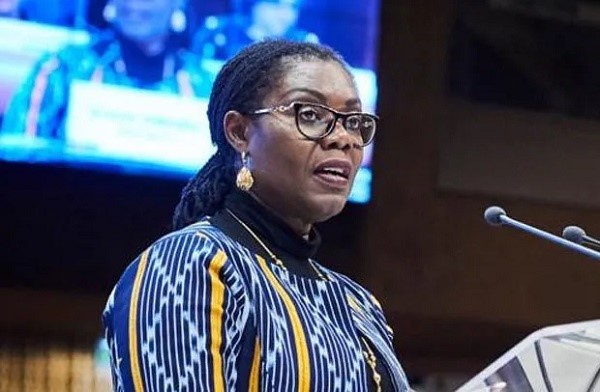As part of measures geared toward developing a comprehensive operational framework for businesses seeking to trade under the African Continental Free Trade Area (AfCFTA), operators of digital-facing enterprises in the country will now be required to obtain a mandatory AfCFTA Number.
The AfCFTA Number refers to a unique, trusted identifier for businesses “designed to lead to a Trusted Business Directory of economic actors that build social credit by maintaining compliance with necessary regulatory criteria”.
While it will be expanded to other categories of businesses, it has in its immediate purview persons and enterprises offering courier, postal, delivery, logistics, ride-sharing, e-commerce, digital trading and related services.
This was disclosed by the minister responsible for Communication and Digitalisation, Ursula Owusu-Ekuful, during the broader AfCFTA Hub’s domestic launch in Accra.
“We are announcing directives meant to speed up adoption of the AfCFTA Number and AfCFTA Common Transaction ID frameworks in Ghana. Beginning immediately, all persons and enterprises engaged in the business of courier, postal, delivery, logistics, ride-sharing, e-commerce, digital trading and any enterprise of that nature are required to obtain an AfCFTA Number at no cost,” she said.
The Number, together with the AfCFTA Common Transaction ID, is part of a raft of measures under the AfCFTA Hub umbrella that will complement existing mechanisms to ensure enhanced transparency, interoperability, security and access for businesses, the minister said.
“The AfCFTA Number is the powerful seed of a single continental trust-building system that will complement other AfCFTA-enabling instruments such as the PAPSS, MANSA, Digital Green Corridor and e-Tariff mechanisms developed by the AfCFTA Secretariat, African Union… With the AfCFTA Number, Ghanaian enterprises will obtain a sure and secure navigational tool as well as a trusted profile to speed-up connections across the continent for business,” Mrs. Owusu-Ekuful explained.
Stressing its benefits in the light of enhanced integration, especially through the upcoming Guided Trade pilot programme, the minister stated that there is need for a one-stop-shop for regulatory compliance across the sub-region.
“All one need do to find out if any courier company, SME or e-commerce entity is safe to do business with is to check their AfCFTA Number and transaction ID,” she stated; adding that since the framework is also being rolled out in other markets, businesses will find that benefits of an AfCFTA Number and the AfCFTA Common Transaction Framework extend well beyond the country.
Hub for all
Touching on the broader Hub, Mrs. Owusu Ekuful said a lack of efficient information sharing among various actors has, so far, impeded trade across the continent. She expressed conviction that the Hub will streamline various public and private initiatives within the country and provide local businesses access to a wider pool of resources.
“Partaking in the Hub will give our businesses visibility beyond the local market, as well as resources such as logistics and market information because they are all on the same platform,” she noted.
The minister added that the telecom and digital finance industries will benefit from deployment of the AfCFTA Hub as a common fraud reporting platform, saying: “Without regional solutions, criminals will exploit the gaps between countries to evade apprehension”.
The Principal Communication Advisor at the AfCFTA Secretariat, Grace Khoza, said the Hub does not represent an additional layer of bureaucracy but will serve to ease existing bottlenecks.
She commended domestic participating stakeholders including the Office of the Vice President, Ministry of Trade and Industry, Association of Ghana Industries (AGI) as well as Ecobank and MTN, saying their contributions are key for actualisation of the Agreement’s goals.
Already, the World Bank estimates that the AfCFTA could increase income across the continent by as much as US$445billion, a 7 percent rise, by 2035; which would lift approximately 40 million people out of extreme poverty.










